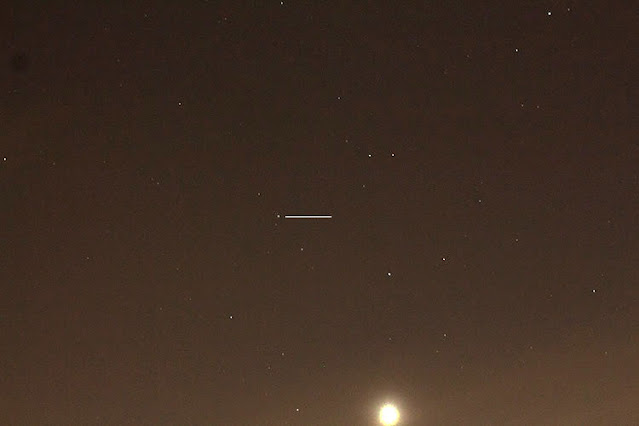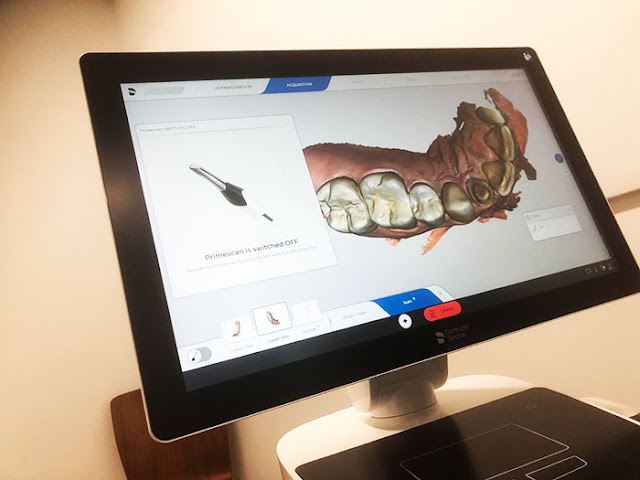Greetings from Palmia Observatory
Well with the upcoming 5 planet alignment coming up later, we wanted to do some DSLR imaging practice of capturing Uranus, which is is very close now to bright Venus.
At this time time, Uranus can be found in the night sky just a couple of degrees away from bright Venus. So, all the lazy astronomer has to do is carry out your DSLR on flimsy tripod and place Venus at the bottom of the camera frame and you should also capture dim, magnitude 5.8 Uranus. Here is a GoSkyWatch screen capture with the details.
 |
| GoSkyWatch shows RA, Dec and Mag for Uranus (Source: Palmia Observatory) |
I selected a 4 second exposure setting with 135mm lens setting. So you can see Venus at the bottom of the frame and Uranus should be right about in the middle of the frame. Uranus is way too dim to see here, especially in city lights viewing conditions.
 |
| Using bright Venus to place Uranus about in the middle of the frame (Source: Palmia Observatory) |
We can double check to see if the lens setting is wide enough to capture Uranus by submitting the image to Astrometry.net and compare the RA and Dec of the image center with the RA and Dec as provided by GoSkyWatch. Hmm, yep we should be able to see something of Uranus right in the center of the frame!
 |
| Astrometry.net shows center of frame RA and Dec (Source: Palmia Observatory) |
The camera image does have a few dim stars and we can compare these observed stars with those that show up in star catalogs, such as in this screenshot from Sky Safari Pro. I found Sky Safari Pro provided slightly dimmer stars than in GoSkyWatch.
So, when I look at the background stars, I see 4 stars off to the right that sort of can be combined as parallelogram and to the left of Uranus I can see 3 stars almost in a vertical line.
 |
| Sky Safari Pro shows background stars around Uranus (Source: Palmia Observatory) |
So, it seems we can find a very dim object, let's just say it is Uranus, in the camera image. Uranus is spotted just to the left of the added horizontal line. Ok, let's call this a success. Now if other non-lazy astronomers were to break out their bigger scopes with longer focal length, we might be able to see more of the planet itself.
 |
| DSLR, 135mm, 4 second exposure with Uranus at left of line (Source: Palmia Observatory) |
So, be sure to do outside tonight and see if you can spot the 5 planets in alignment. It might be cloudy here, but good luck for the rest of you.
Well, it is not all about looking up here at the observatory, sometimes a trip to the dentist reveals some interesting new 3D imaging technology. Here we see the 3D scan of some of my teeth and fit for a new crown. This scan was achieved by moving the camera wand around in my mouth and the computer software builds a 3D model and image. Pretty neat!
 |
| PrimeScan dental technology for 3D imaging of teeth (Source: Palmia Observatory) |
Finally, while still under the influence of the Novocaine and earlier Bloody Mary's, and after all this talk of Uranus, my juvenile brain, found this "funny" cartoon in the email in-basket.
 |
| Primates on achieving language gender neutrality (Source: Post on Retalk, submitted by a blog reader) |
Until next time,

No comments:
Post a Comment